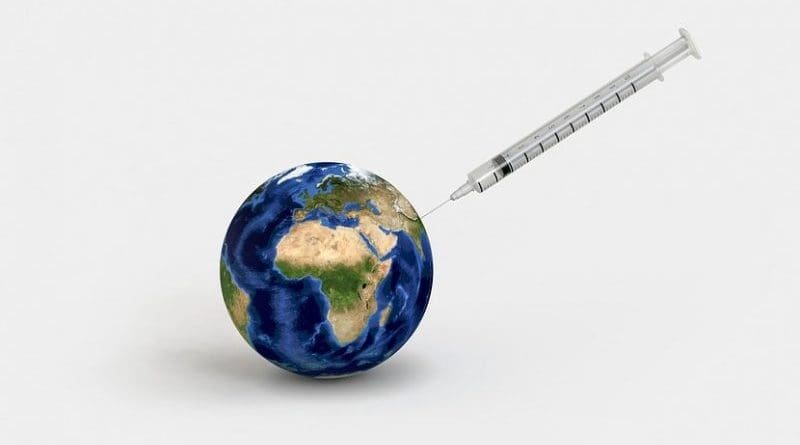Three In Four Adults Globally Say They’d Get COVID-19 Vaccine: Is This Enough?
In a new World Economic Forum-Ipsos survey of nearly 20,000 adults from 27 countries, 74% say they would get a vaccine for COVID-19.
This majority might still fall short of the number required to beat COVID-19, with less than a majority (37%) who are firm in their view. More than half (59%) do not expect that one will be available before the end of this year.
Intentions to get vaccinated against COVID-19
Globally, 74% of all adults surveyed agree that, “if a vaccine for COVID-19 were available, I would get it” (37% strongly agree and 37% somewhat agree) while 26% disagree (15% somewhat and 12% strongly).
The countries where Covid-19 vaccination intent is highest are: China (97%), Brazil (88%), Australia (88%), and India (87%). Those where it is lowest are: Russia (54%), Poland (56%), Hungary (56%), and France (59%).
In most countries, those who agree outnumber those who disagree by a significant margin (more than 50 percentage points in 12 out of 27 countries).
Arnaud Bernaert, Head of Shaping the Future of Health and Healthcare, at the World Economic Forum said, “The 26% shortfall in vaccine confidence is significant enough to compromise the effectiveness of rolling out a COVID-19 vaccine. It is therefore critical that governments and the private sector come together to build confidence and ensure that manufacturing capacity meets the global supply of a COVID-19 vaccination programme. This will require cooperation between researchers and manufacturers and public funding arrangements that remove restrictions to vaccine access.”
Expectation that a COVID-19 vaccine will be available this year
Across all 27 countries, 59% disagree that “a vaccine for COVID-19 will be available to me before the end of 2020” (23% strongly and 36% somewhat) while the other 41% agree (9% strongly and 31% somewhat).
Again, China stands out for its optimism, with 87% of those surveyed expecting a vaccine to be ready this year.
Agreement is also high in Saudi Arabia (75%) and India (74%). By contrast, skepticism prevails in Germany, Belgium, Japan and Poland where fewer than one in four adults anticipate that a vaccine will be available at some point in the next four months.
Reasons for not taking a vaccine
The most frequently mentioned reason for not taking a vaccine among those who would not get one is worry about side effects, followed by perception of effectiveness. There are also several countries that feel they are not sufficiently at risk and a proportion who are against vaccines in general.
About the Study
These are the results of a survey conducted by Ipsos between July 24 and August 7, 2020 on its Global Advisor online survey platform among a total of 19,519 adults, aged 18-74 in United States, Canada, Malaysia, South Africa, and Turkey, and aged 16-74 in 22 other countries. Where results do not sum to 100 or the ‘difference’ appears to be +/-1 more/less than the actual, this may be due to rounding, multiple responses or the exclusion of don’t knows or not stated responses.

